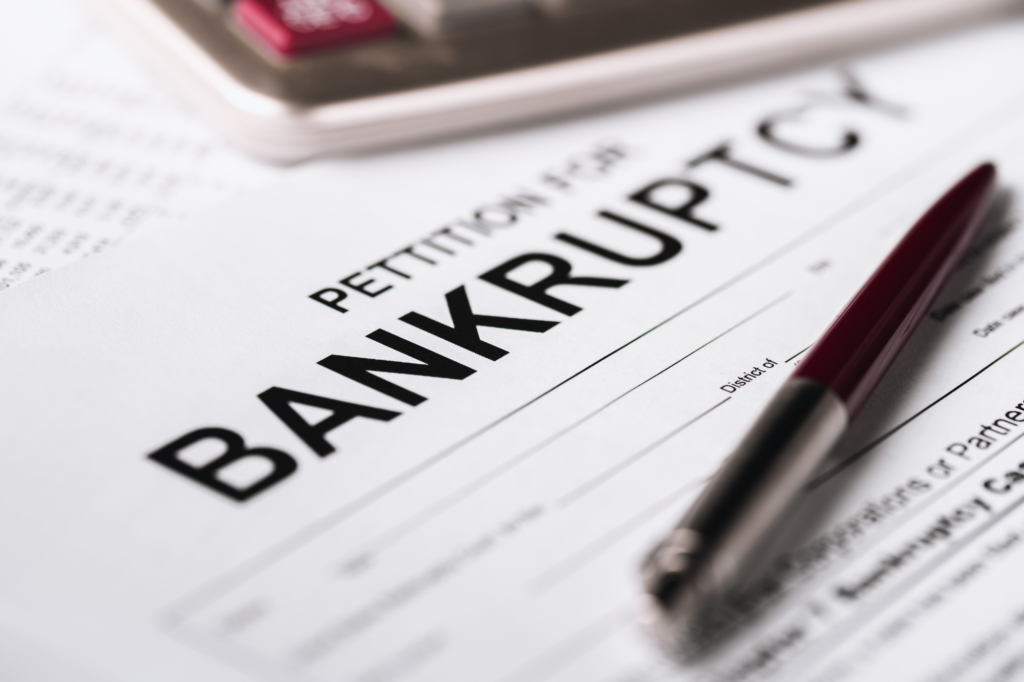Key Takeaways
- Business debt consolidation and bankruptcy are two distinct approaches to managing financial distress.
- Debt consolidation allows businesses to streamline multiple debts into a single loan, often with better terms.
- Bankruptcy provides a legal framework for businesses to be released from debts and for creditors to stop contacting them.
- Debt consolidation can help preserve business credit ratings and relationships with creditors.
- Bankruptcy may offer more comprehensive debt relief but can have long-lasting consequences.
- The choice between consolidation and bankruptcy depends on factors such as debt level, cash flow, and future business prospects.
- Seeking professional advice is crucial before making a decision between these options.
For Australian businesses on the brink of insolvency, choosing their next step is crucial to their financial safety. Should a business save its finances through a debt consolidation loan, or is applying for bankruptcy a more sound decision? Let’s explore the differences between these two financial strategies so you can make an informed decision that could safeguard your company’s future.
Important disclaimer: This article is not financial advice and is not to be relied upon as such. The article does not take into account your circumstances and it is our recommendation individuals and businesses should always seek professional financial advice.
Understanding Business Debt Consolidation
Business debt consolidation is a financial strategy that involves combining multiple debts into a single loan. It’s common for small businesses to accumulate several, high-interest loans with different due dates, complicating their finances in the long run. These debts include short-term loans, lines of credit, credit card debt, tax debt and more.
When you consolidate debts, it’s essentially applying for a new, larger loan with a lower interest rate or better overall terms and using the funds to cover all existing high-interest debts. This approach can simplify debt management and potentially reduce overall interest costs.

Benefits of a Debt Consolidation Loan
- Simplified Repayments: By consolidating multiple debts into one loan, businesses can streamline their repayment process, making it easier to manage cash flow and reduce the risk of missed payments.
- Potential Interest Savings: Debt consolidation loans may offer lower interest rates compared to existing debts, especially if the business’s credit profile has improved since the original loans were taken out.
- Improved Cash Flow: With potentially lower monthly payments, businesses may free up cash for operational expenses or growth initiatives.
What Are the Drawbacks of a Debt Consolidation Loan?
- Possibility of Extended Repayment Period: Consolidation loans may extend the overall repayment period, potentially increasing the total interest paid over time.
- Temptation to Acquire New Debt: With existing debts consolidated, some businesses may be tempted to take on new debt, potentially worsening their financial situation.
- Masking Underlying Issues: Debt consolidation alone may not address fundamental business problems that led to financial distress in the first place.

Understanding Bankruptcy
Bankruptcy is a legal process that provides a framework for businesses that are unable to repay their debts. In Australia, businesses can pursue two main types of bankruptcy:
- Voluntary: You can volunteer to become bankrupt
- Involuntary: Your creditors can apply for you to become bankrupt
There’s no minimum or maximum amount of debt required for a business to be eligible to apply for bankruptcy. A business only needs to be in Australia and unable to pay its debts on time.
A business can apply to be bankrupt by filing a debtor’s petition with the Australian Financial Security Authority (AFSA). It’s also important to complete the statement of affairs for voluntary or involuntary bankruptcy.
Once you apply to be bankrupt, the AFSA will assign an Official Trustee to administer your bankruptcy and take action like asset liquidation to repay your debts. If you applied voluntarily, you may nominate a Trustee of your choosing.
At this point, you are protected from any legal action from your creditors and most of your unsecured debts will be cleared.
Benefits of Applying for Bankruptcy for Australian Businesses
- Debt Relief: Bankruptcy can lead to the discharge of certain debts, providing relief to the business owner or company from debts they cannot repay. This can offer a fresh start by wiping out unsecured debts.
- Protection from Creditors: Bankruptcy comes with legal protection that prevents creditors from pursuing further legal actions, such as debt collection, lawsuits, or garnishments, allowing the business some breathing room.
- Orderly Liquidation or Reorganisation: Bankruptcy provides a structured legal process for either reorganising the business or liquidating its assets.
Drawbacks of Applying for Bankruptcy
- Loss of Management Control: When a company is placed in bankruptcy, control is handed over to a trustee or liquidator. The business owners or directors lose control over the day-to-day operations and decision-making.
- Sale of Assets: Bankruptcy often involves the liquidation of business assets to pay creditors. This could mean selling valuable assets, including property, equipment, or inventory, potentially at a loss.
- Negative Impact on Credit: Applying for bankruptcy can significantly damage a business’s and its owners’ credit ratings. Credit reporting agencies keep a record of your bankruptcy up to 5 years from when it was filed. This can make it challenging to obtain financing in the future.
- Public Disclosure: Bankruptcy applications are a matter of public record in Australia. This can affect the business’s reputation and future relationships with customers, suppliers, and stakeholders

Business Debt Consolidation vs Bankruptcy: How to Choose
When a business is facing financial trouble, choosing between applying for a debt consolidation loan and applying for bankruptcy depends on the specific circumstances and financial condition of the business. Here are some considerations to help decide when to opt for a debt consolidation loan versus bankruptcy:
When to Apply for a Debt Consolidation
- Manageable Debt Load: If the total debt amount is relatively manageable and you believe your business can handle a single monthly payment with a lower interest rate, a debt consolidation loan might be a viable option for you. This allows you to simplify your business’s debt obligations and potentially lower overall monthly payments.
- Stable Revenue Stream: If your business still has a stable and predictable revenue stream, consolidating debt can help reorganise payments and improve cash flow without significantly impacting day-to-day operations.
- Avoiding Credit Damage: Opting for a debt consolidation loan can help avoid the severe credit damage that comes with applying for bankruptcy. It may be a preferred option if you want your business to maintain a relatively positive credit profile for future borrowing needs.
- Potential for Recovery: If you believe there is a realistic path to recovery and that the financial difficulties your business is experiencing are temporary, a debt consolidation loan can provide the necessary breathing room.
When to Consider Applying for Bankruptcy
- Overwhelming Debt: If your business is overwhelmed with debt that far exceeds its ability to pay, bankruptcy may be a more appropriate option.
- No Viable Path to Repayment: When there is no viable path to repaying debts due to a lack of revenue, assets, or both, declaring your business bankrupt might be necessary to prevent further financial damage.
- Protection from Creditors: Bankruptcy provides legal protection from creditors, which can stop collection efforts, lawsuits, and garnishments. This can give your business some breathing space to reorganise or liquidate assets in a controlled manner.
- Desire to Liquidate and Close: If you have decided to close the business due to insurmountable financial challenges, bankruptcy allows for an orderly liquidation of assets and the discharge of debts.
- Long-Term Financial Relief: In cases where debt consolidation would only provide a short-term solution and the business’s financial problems are structural and long-term, bankruptcy might offer a more sustainable form of relief.

Making the Right Decision for Business Debt Relief
Choosing between business debt consolidation vs bankruptcy is a critical decision that requires careful consideration of your company’s specific circumstances. Here are some steps to help you make the right choice:
- Assess Your Financial Situation: Conduct a thorough analysis of your business’s debts, assets, cash flow, and future prospects.
- Consider Long-Term Goals: Evaluate how each option aligns with your long-term business objectives and personal financial goals.
- Explore All Options: Investigate alternatives such as debt negotiation, asset sales, or operational restructuring before committing to consolidation or bankruptcy.
- Seek Professional Advice: Consult with \ financial advisors, accountants, and legal professionals before taking action.
- Understand the Consequences: Carefully consider the short-term and long-term implications of each option on your business, personal finances, and future opportunities.
- Act Quickly and Decisively: Once you’ve made an informed decision, take prompt action to implement your chosen strategy and minimise further financial damage.
Conclusion
The choice between business debt consolidation vs bankruptcy is not one to be taken lightly. Both options offer potential paths out of financial distress, but each comes with its own set of advantages, drawbacks, and long-term consequences. By thoroughly understanding these options and carefully evaluating your business’s unique situation, you can begin to consider the pathway that gives your company the best chance of recovery and future success.
Please note information in this article is subject to change. No warranty or guarantee is provided for the accuracy of any information on this page. Individuals and businesses should always seek financial and legal advice before making any decisions.
Consolidate Your Debts and Relieve Your Business from Financial Strain
Dark Horse Financial offers tailored debt consolidation solutions to small businesses. If you’re struggling to manage several debts at the same time, this solution might be the best route for you.





